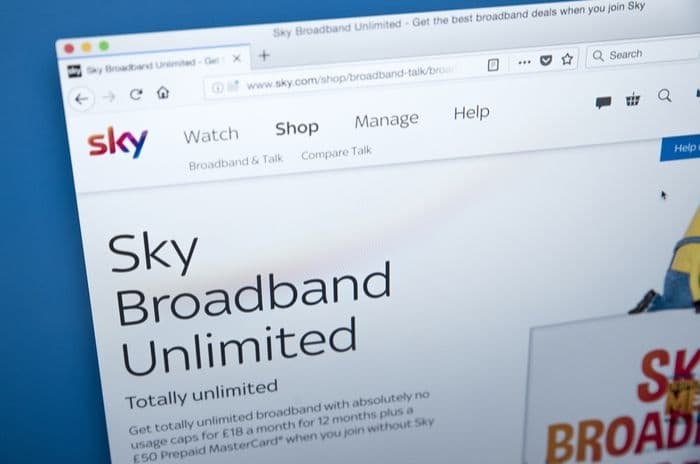Home > TV & Broadband > News > Sky confirm broadband and TV price rises for 2024
Sky confirm broadband and TV price rises for 2024
Sky customers to see average price rises of 6.7% from April 2024 for TV and broadband.
Sky has announced the price of their TV and broadband services will be going up from 1st April 2024, with increases of 6.7% on average.
The provider doesn't set specific price rises in their terms linked to inflation, which means affected customers will be given 30 days' notice to exit their contract penalty free.
Annual price rises due in April for other broadband providers looks set to be higher, with BT, Plusnet, EE, and Vodafone increasing prices by 7.9%.

Sky price rises
Sky TV and broadband will be increasing in price by an average of 6.7% from 1st April 2024 for existing customers whether they're in or out of contract.
Because Sky don't have a price rise clause with a specific inflation-linked amount, and because the increase is above inflation, customers will be given 30 days' notice of the changes and will be able to exit their contract penalty free if they want to reject the rise.
The actual increases will depend on the package a customer has, as well as when they signed up. But we can see some example increases based on those being applied to new customers signing up today.
| Package | New customer price | Increasing by from 1 April |
|---|---|---|
| Superfast Broadband | £28.50 | £3.50 |
| Full Fibre 100 | £28.50 | £1 |
| Ultrafast Broadband | £30 | £3 |
| Ultrafast Plus | £34 | £4 |
| Gigafast | £44 | £4 |
The monthly prices of Sky TV are also increasing:
| Package | New customer price | Increasing by from 1 April |
|---|---|---|
| Sky Entertainment | £25 | £2 |
| Whole Home | £12 | £1 |
| Sky Kids | £6 | £1 |
| Sky Sports | £25 | £3 |
| Sky Cinema | £10 | £3 |
So, while some prices are only increasing by 3.5%, others are going up by as much as 12.2%, which makes Sky's increases more than those of providers using CPI or RPI based increases.
Although this year's increases are less than the average increases of 8.1% seen by Sky's broadband and TV customers in April 2023.
Mid-contract price rises
Ofcom is currently in the process of consulting on a proposal to ban inflation-linked price rises, which is due to complete in the Spring of 2024.
However, while Ofcom's suggested a pounds and pence method would be more transparent and easier for consumers to understand, it also runs the risk of allowing increases to actually be even more expensive.
For example, BT's recent announcement of a new pricing policy suggest broadband prices would go up annually by £3 per month, which equates to a rise of 8.57% on a typical £35 broadband bill.
Inflation would need to be greater than 4.6% for this to work out better for consumers, despite the Government's target of 2%, and current inflation levels being less at 4%.
While Sky customers do have the added benefit of being able to refuse their increases by exiting their contract, some customers will be paying more than those on inflation-linked increases.
More so, it's worth remembering, that while Ofcom is proposing a ban on inflation-linked price rises, their proposal document says providers will still be able to use unspecified "prices may rise" clauses as Sky does now.

We are independent of all of the products and services we compare.

We order our comparison tables by price or feature and never by referral revenue.

We donate at least 5% of our profits to charity, and we have a climate positive workforce.
Get insider tips and the latest offers in our newsletter






Comments